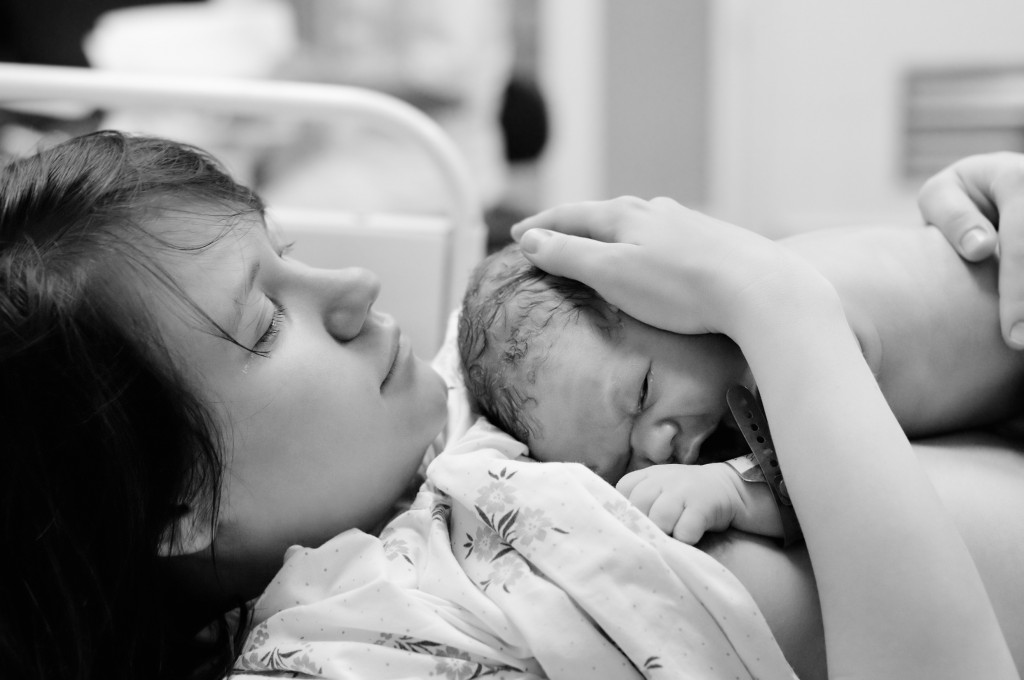It’s okay to be honest, moms: While having a new baby brings joy like no other, it also comes with a host of challenges and difficulties. When we factor in a pandemic and a recession, it becomes even harder. I know this isn’t the circumstances upon which you wanted to bring a new person into the world, but unfortunately, this is the current reality of the world, and all we can decide to do is make the best of it.
It’s easy to neglect self-care when you have a new baby, but now more than ever, mothers need to care for themselves if they want to be able to take care of those around them. Self-care should never be seen as selfish, especially in 2020. There’s a reason why we must put our own oxygen mask on before we help others; the best way we can be of service to others is for us to be at our healthiest, most complete state.
Here are some self-care pointers new moms should not neglect.
Get plenty of rest.
After giving birth, you need to get as much sleep as you can to combat fatigue. Babies wake up every two to three hours to feed, so make sure you sleep when the baby sleeps. Partner with your spouse or a family member in taking care of the baby.
Watch out for postpartum depression.
Postpartum depression, or “baby blues,” is the overwhelming feeling of sadness, emptiness, and even detachment after giving birth. It can be marked by crying spells, anxiety, mood swings, difficulty sleeping, and other symptoms of depression. Don’t panic when this happens; it’s common, and according to research, it affects one in eight mothers.
If you find yourself having the baby blues, reach out to your primary healthcare provider—they might be able to provide you with a treatment plan to help you contend with the depression. Don’t just wait for it to go away; the first few months of your baby’s life are crucial to creating a healthy bond and attachment between the two of you.
Observe and adjust.
Carefully observe how your body is changing and reacting. Along with the emotional roller coaster, your body will undergo a lot of changes, too. Here are some common postpartum issues you need to watch out for and how you can address them:
- Constipation. Drink plenty of water and consume a lot of high-fiber foods to help stimulate bowel activity.
- Vaginal discharge. Having vaginal discharge is normal, and you may have it two to four weeks after giving birth. It’s the way your body eliminates tissue and blood from your uterus. Wear sanitary napkins while you wait it out.
- Breast engorgement. Breast engorgement happens when milk comes into your breasts, and they become fuller and firmer. It’s when your body produces more milk than your breasts can hold, and they become rock hard and uncomfortably full. It’s temporary and easily treated; allow your baby to feed as often as possible. You can also use a breast pump to express a little milk.
Do some light exercises.

Before you do any form of exercising, consult with your doctor first. There is no hard and fast rule about exercising after giving birth; it’s a case-to-case basis because all moms and their cases are different. That said, if you would like to combat sedentariness, here are some simple and light exercises you can do:
- Taking a stroll around the neighborhood with your baby. Just don’t forget to wear your mask.
- Doing some deep breathing exercises with abdominal contraction.
- Kegel exercises can help tone your bladder muscles. The more kegel exercises you do and the longer you hold them, the more control you will have over leaks. Do it only once your doctor gives you the go-signal.
Don’t neglect your dental health.
If you’re planning to breastfeed, you need to take better care of your teeth. When your body lactates, your bones send more calcium into your bloodstream, while your kidneys release less calcium into your urine to preserve it for milk. If the bones in your mouth break down too much, you might encounter problems with your teeth and gums.
Maintain your oral health by brushing it twice a day and by consuming enough calcium. Go to your dentist regularly as well, so they can help you if you need any procedure like dental implants.
You’re Not Alone
Our circumstances may be different, but all moms know what it’s like to adjust to the new realities of having a newborn. Don’t be afraid to seek support from your fellow moms or even professional help. Yes, having a new baby is hard, but the joy and fulfillment are always worth the fight. You can do it!

